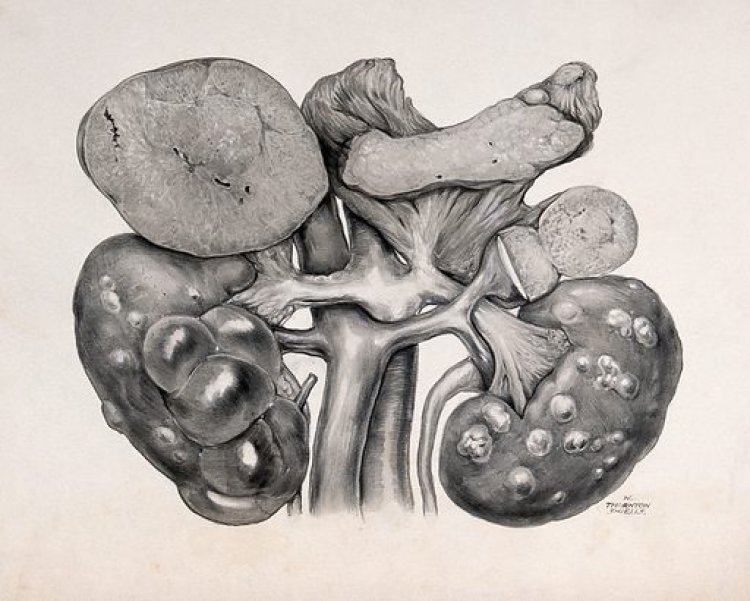Kidney Valley: The Alarming Trade of Organ Sales in Nepal
Explore the distressing phenomenon of kidney sales in Nepal, where impoverished individuals resort to selling their kidneys to fulfill basic needs, and uncover the involvement of brokers, doctors, and hospitals.

Hokse village, located just 35 kilometers away from Nepal's capital city, Kathmandu, has gained international recognition as the "kidney valley". It is known that in this village, almost every household has had one or more members who have either willingly or forcibly sold their kidneys. People are compelled to resort to kidney sales to fund their children's education, acquire land and build houses, fulfill their dreams, and even provide basic sustenance for themselves. The brokers operating in the village go so far as to claim that if one kidney is sold, another will miraculously regenerate. Unfortunately, many of the kidney sellers who believed these assurances now find themselves leading miserable lives.
For the first time in 1990, a broker approached a man from Hokse village and offered him Rs. 10,000 to donate a kidney, marking the initial instance of such a transaction. Over time, the practice of kidney donation and selling gradually transformed into a profession within the village. And now this problem is not limited to Hokse village alone; many underprivileged regions in Nepal have seen an alarming increase in kidney sales. Another example is the district of Kavre in Nepal has gained recognition as a prominent hub for kidney transactions, often referred to as the "Kidney Bank", particularly after the COVID-19 pandemic and the occurrence of earthquakes. It appears that various parties, including relatives, neighbors, government employees, doctors, and political factions, are somehow connected to this distressing phenomenon.
Despite an annual global kidney transplant rate of approximately 150,000, an estimated 2.5 million patients remain unable to receive a kidney, and this number is projected to increase to 5.4 million by 2030. These statistics indicate a significant demand for kidneys but a severely limited supply in the global market. In the context of Nepal and India, these two countries require 350,000 kidneys annually, while the supply, albeit illegal, is only 8,000 to 10,000. The underground trade in kidneys has steadily grown, amounting to around $1.7 billion, as brokers are drawn to the increasing demand and limited supply. This entire operation is orchestrated by a central figure who forms two teams: one responsible for identifying potential recipients and the other for sourcing kidneys. The team searching for recipients identifies individuals in need through various channels, given the abundance of demand. Brokers specifically target individuals who are capable of making significant investments. The brokers charge fees ranging from 200,000 to 10,000,000. On the other hand, the team responsible for sourcing kidney ventures into economically disadvantaged rural areas targets individuals who are in dire need of money. They manipulate these individuals' desperate financial situations and convince them to sell their kidneys, often by making false claims such as one kidney being able to function as two or the remaining kidney regenerating itself. The desperate individuals, motivated by their financial hardships, unquestioningly accept the brokers' statements and proceed to sell their kidneys.
In Nepal, a country where hard work throughout the day fails to provide enough sustenance, people in need are easily enticed by the promise of a large sum of money. Some cases involve individuals who initially refused to donate their kidneys but were forcibly coerced by kidney brokers. These brokers even administered injections that rendered people unconscious for a few hours before extracting their kidneys. A real-life example involves Santosh from Nuwakot, who was facing financial hardships when a group of individuals approached him, offering job opportunities in India to improve his career prospects. Upon reaching Kolkata, the brokers insisted on a blood test, but their true intention was to extract Santosh's kidney, deceiving him in the process. Santosh recalled, "They took me there for three months, and then they said we need to check your blood; let's go to the hospital. I went with them, and they put something on my face. The next thing I remember is waking up and not recalling anything after that." Another example involves a broker convincing a prospective kidney recipient by promising them 40–50 hectares of land in return for their kidney but ultimately not fulfilling that promise.
In some cases, kidney donors themselves become kidney brokers. A real-life instance involves a person from Hokse village who worked as a chef in India but struggled to meet his basic needs. A friend suggested he sell his kidney, and he did, driven by the desire for a substantial sum of money at once. After selling his kidney, he returned to his village, purchased land, and built a house, realizing his dreams. As news of his success spread, villagers became aware of his kidney sale and approached him, requesting assistance in selling their kidneys. Thus, a kidney donor transformed into a kidney broker over time.
The amount of money received by kidney sellers varies depending on the financial requirements of the donor and their susceptibility to emotional manipulation. However, in numerous cases, the promised amount is indeed given to the donor.
How Hospitals and Doctors Are Involved in This Practice:
Doctors are the individuals responsible for extracting kidneys from donors. Many doctors perform this procedure either at their homes or clinics, while some hospitals accept patient-provided documents without conducting thorough verification. Both doctors and hospitals involved in this process are receiving substantial amounts of money. Unfortunately, during kidney extraction, doctors often fail to adhere to proper medical protocols, leading to detrimental consequences for the donors.
Even though one kidney can effectively fulfill its function, several side effects may arise after donating a kidney. These include respiratory issues, problems with blood circulation, the risk of heart stroke, physical limitations, and various other complications.
Law for a Kidney Transplant in Nepal:
As per the law, kidney transplantation is restricted to relatives only. However, individuals are resorting to creating fraudulent relationship certificates to engage in illicit kidney transplant activities. Since the production of such counterfeit documents requires a certain level of expertise, it is evident that those in positions of power, including individuals associated with political parties, are involved in the fabrication of these false documents.
What's Your Reaction?




































































































